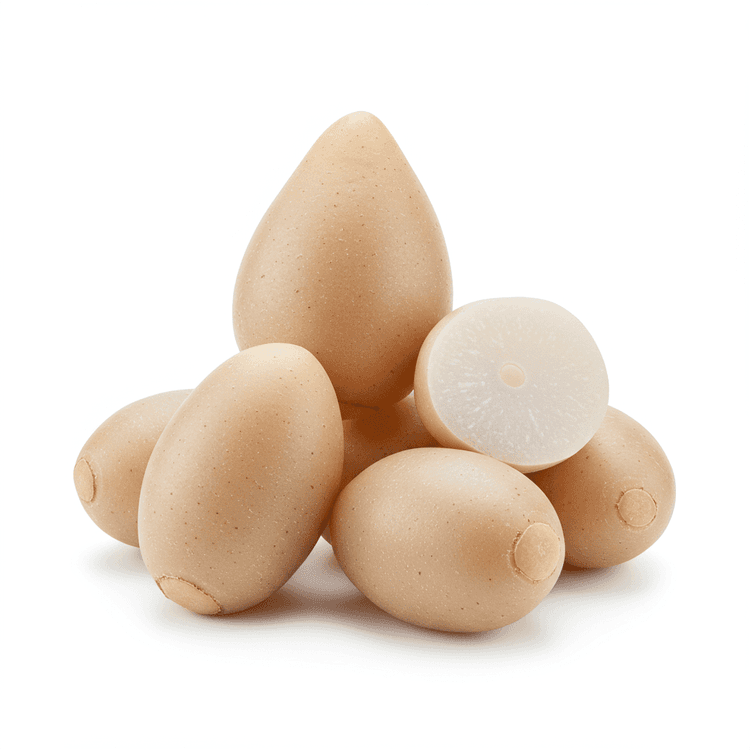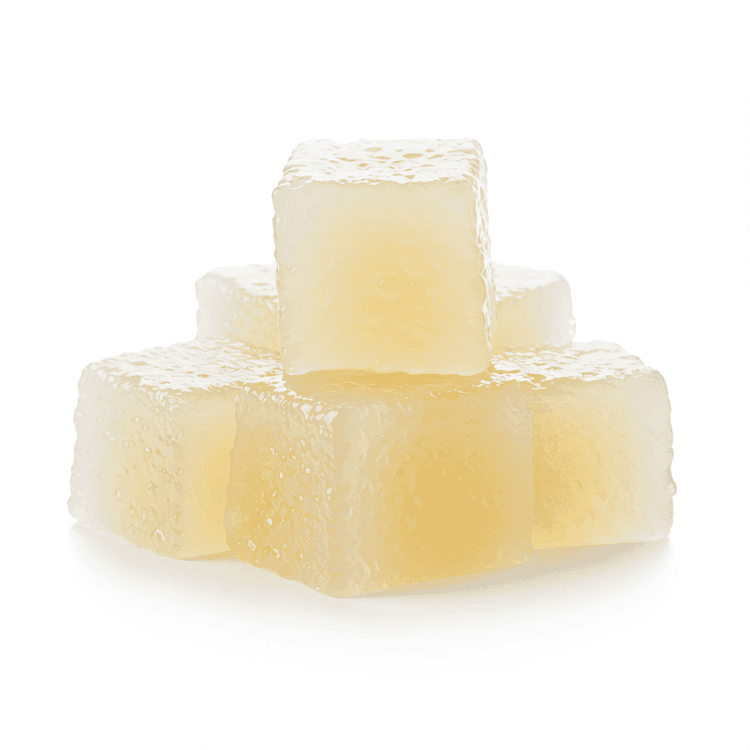
Konjac
Konjac, also known as elephant yam or devil's tongue, is a versatile plant-based ingredient prized for its neutral flavor and gelatinous texture. Derived from the root of the konjac plant, it is commonly processed into flour, noodles, or jelly-like blocks. Konjac is low in calories and high in dietary fiber, particularly glucomannan, making it a popular choice for weight management and digestive health. Its translucent appearance and ability to absorb flavors make it a unique addition to various dishes, especially in Asian cuisine.
Common Uses
- Used to make konjac noodles (shirataki noodles), which are a low-calorie, gluten-free alternative to traditional pasta in stir-fries, soups, and salads.
- Incorporated into vegan and vegetarian dishes as a meat substitute due to its chewy, gelatinous texture.
- Processed into konjac jelly or blocks for use in desserts, snacks, or as a thickening agent in recipes.
- Added to smoothies or beverages in powdered form for its high fiber content, promoting satiety and digestive health.
- Used in Asian hot pots and soups to absorb the flavors of broths and spices, enhancing the overall dish.
- Utilized in gluten-free baking as a binding agent or thickener to improve texture and consistency.
Nutrition (per serving)
Nutrition (per serving)
Calories
6.0kcal (0.3%)
Protein
0.1g (0.2%)
Carbs
1.3g (0.47%)
Sugars
0.0g
Healthy Fat
0.0g
Unhealthy Fat
0.0g
% Daily Value based on a 2000 calorie diet
Nutrition (per serving)
Calories
6.0kcal (0.3%)
Protein
0.1g (0.2%)
Carbs
1.3g (0.47%)
Sugars
0.0g
Healthy Fat
0.0g
Unhealthy Fat
0.0g
% Daily Value based on a 2000 calorie diet
Health Benefits
- Supports weight management due to its low calorie and high fiber content.
- Promotes digestive health by aiding in regular bowel movements and reducing constipation.
- Helps regulate blood sugar levels, making it beneficial for individuals with diabetes.
- May lower cholesterol levels by binding to fats in the digestive system.
- Provides a feeling of fullness, reducing overeating and supporting appetite control.
- Contains glucomannan, which is linked to improved gut health and microbiome balance.
Substitutes
Chefadora AI is here.
Experience smarter, stress-free cooking.
Storage Tips
Store konjac products, such as konjac noodles or blocks, in a cool, dry place if they are unopened and packaged. Once opened, refrigerate them in an airtight container with clean water to maintain freshness. Replace the water daily to prevent spoilage. Avoid freezing, as it can alter the texture of konjac-based foods. For powdered konjac, keep it in a sealed container at room temperature away from moisture and direct sunlight.
Marnirni-apinthi Building, Lot Fourteen,
North Terrace, Adelaide, South Australia, 5000
Australia

